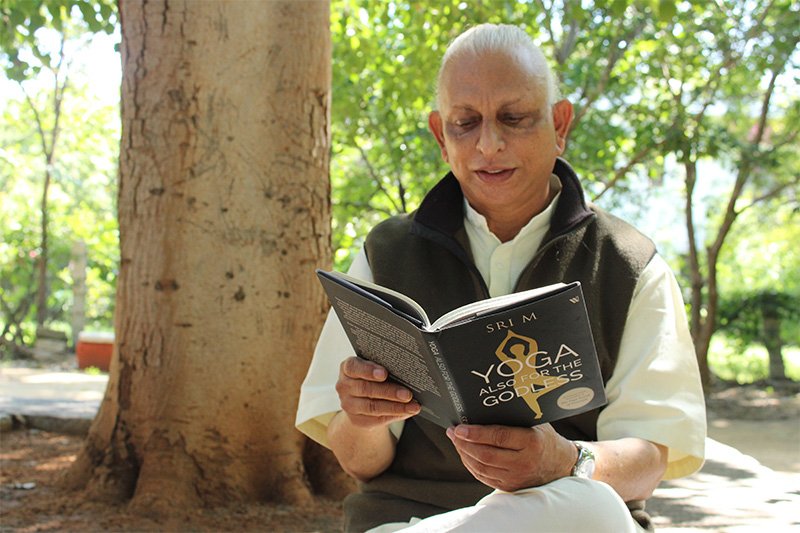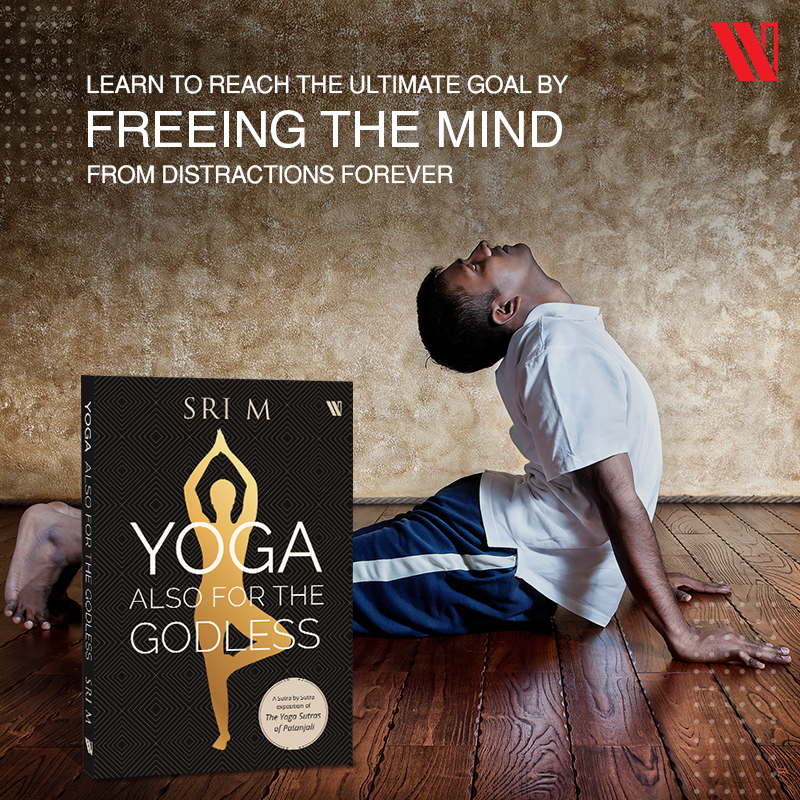
There is no knowledge equal to Sankhya and no power equal to Yoga
– The Mahabharata
An excerpt from Sri M’s book, Yoga Also For The Godless
Some years ago, I met a smart young lady who said to me, ‘M, I believe you are a yogi. I thought you might be able to shed light on a question on yoga. I was very keen on practising yoga after I heard about its health benefits. The fact that many celebrities practise yoga to keep in shape also influenced me.’
‘I approached a yoga teacher. He started teaching me Sanskrit shlokas in praise of God and insisted that I chant them. I tried convincing him that I was an atheist. I was born a Hindu but do not think it necessary to believe in God. He strongly felt that without invoking Lord Ganesha, I could not begin my yoga practice and insisted that the aim of yoga was God-realisation.’
‘I told him that there is no God and, therefore, learning yoga for me was not to reach something that according to me did not exist. He was adamant and asked me to find another instructor.’
‘What do you think?’
This yoga teacher, the girl referred to, is not an exception. Thousands of people labour under the mistaken notion that yoga is a theistic philosophy and is not for atheists and agnostics. Some yoga teachers admit that mere postures can provide health benefits, but the higher aspects such as the expansion of consciousness and the attainment of Kaivalya, freeing the consciousness from the limitations of conditioned thinking and awakening to its infinite potential, is not realisable by the godless.
This book is meant precisely to change such misunderstood notions about yoga, while serving as a practical guide to practise yoga to perfection, without the ‘God crutch’. You will understand that ancient yoga philosophy has almost no interest in the concept of a creator or an all-powerful God, who controls you and throws you into heaven or hell according to his whims and fancies.
Even the great Patanjali, considered the foremost and earliest exponent of systematic yoga, in his masterpiece, The Yoga Sutras, uses Ishwara (God) only twice in the entire text and only as a useful adjunct to the main practices. Whether Patanjali’s Ishwara denotes an omnipotent ‘thundering God’ or the tranquil Purusha of Sankhya philosophy is an age-old question that needs a healthy debate. We will look into these and other points of view because to practise yoga well, an understanding of its philosophical roots is important.
Lastly, this book is an attempt to save the purity of yoga from being adulterated by religious cults and politico-religious outfits keen to exploit the masses and use them to their advantage.
To sum up, excellence in yoga, the science of expansion of consciousness and achieving freedom from limitation, has nothing to do with one’s personal beliefs, religious or otherwise. It depends entirely on the step-by-step practice of the methods described in the yoga texts and guidance of a proper and authentic expert. To take up the practice of yoga based on having read up an obscure text, without the guidance of an expert, is fraught with danger, and the physical and psychological consequences can be serious. If, on the other hand, one is patient and goes at it carefully, taking up only those practices that suit one’s physical and mental capacity, a great new world, vast and almost unlimited, opens up before the yogi, who turns into one of the finest specimens of homo sapiens, with an inexhaustible fund of energy and a mind at peace. An authentic yoga teacher, open to dialogue and not intent on forming a cult, would be ideal in helping customise one’s yoga practice.
Published by Westland, December 2020.
Available at your local bookstore and online.


